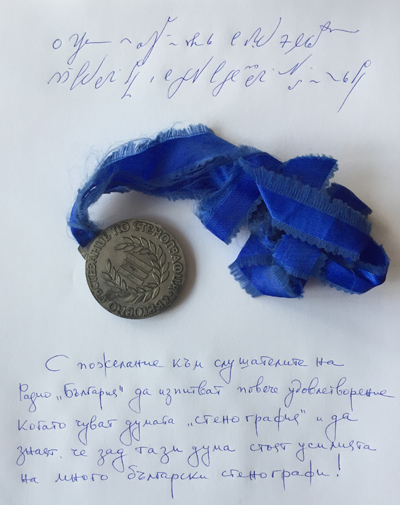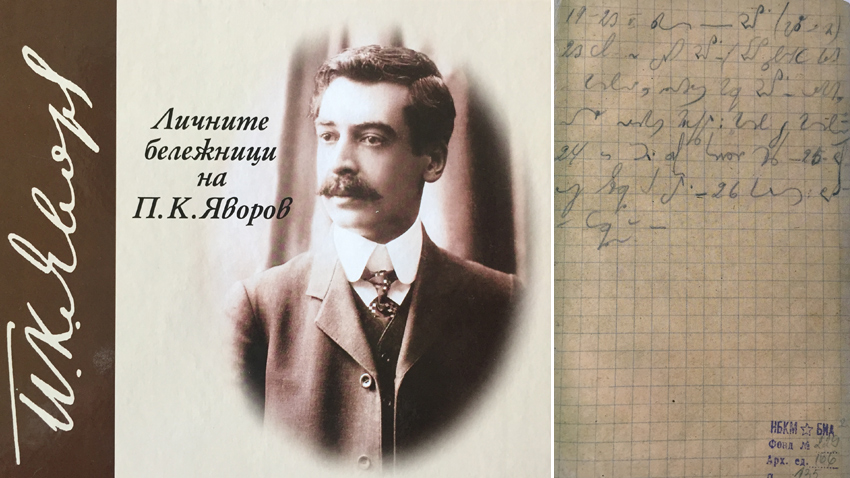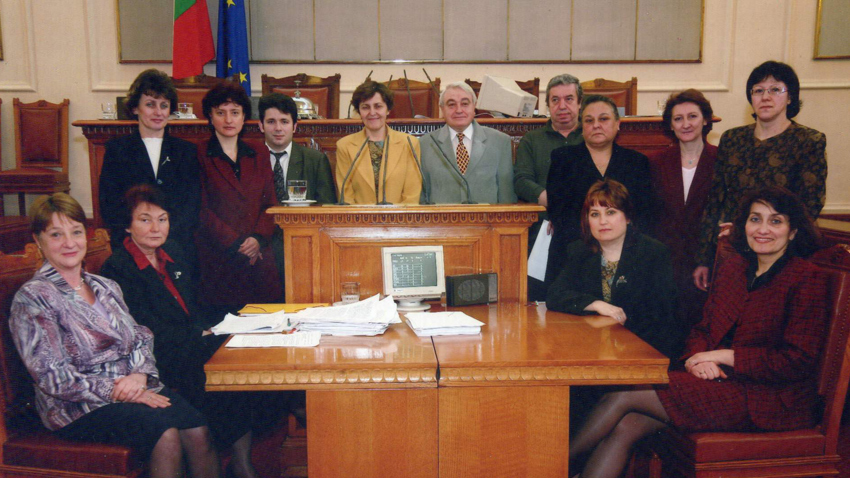You are a student who does consecutive interpreting or has to make shorthand notes. Then, start learning stenography. It will be your indispensable assistant. The Chairman of the National Association of Stenographers, Typists and Computer Operators Karamfil Matev told Radio Bulgaria details  about the magic of stenography. Karamfil Matev studied engineering, but later turned his teenage hobby (shorthand) into his profession. When he was still a high-school pupil he became a national champion in stenography. He also worked as Parliamentary stenographer. Later, he headed the stenographers section at the Bulgarian Council of Ministers. Now, Karamfil Matev works as Parliamentary stenographer. His record is 180 words per minute. As a result, he earned a medal at the World Stenography Competition.
about the magic of stenography. Karamfil Matev studied engineering, but later turned his teenage hobby (shorthand) into his profession. When he was still a high-school pupil he became a national champion in stenography. He also worked as Parliamentary stenographer. Later, he headed the stenographers section at the Bulgarian Council of Ministers. Now, Karamfil Matev works as Parliamentary stenographer. His record is 180 words per minute. As a result, he earned a medal at the World Stenography Competition.
The need of shorthand writing in Bulgaria emerged after the country’s liberation from the Ottoman Rule in1878 when the Grand National Assembly was convened. It adopted one of Europe’s most modern constitutions- the Tarnovo Constitution. The debates of the Bulgarian MPs were written at that time by people who knew Bulgarian script. Following tense disputes regarding the notes taken at the National Assembly, the MPs decided to introduce stenography at the Bulgarian Parliament, just like in other Western European countries. However, no Bulgarian knew shorthand. That is why the Bulgarian authorities invited a Slovenian national to do the job, Karamfil Matev points out and adds:
“His name is Anton Toma Bezenšek. He had already launched Slovenian and Serbo-Croatian stenography based on Franz Gabelsberger shorthand.”
In the autumn of 1879, after the establishment of Bulgarian stenography, Bezenšek and his friend Jiří Prošek became Bulgaria’s first stenographers. They introduced the first Bulgarian stenographers into this profession. In the past, the Association of Bulgarian Stenographers, Typists and Computer Operators boosted the initiative aimed at unveiling a monument to Anton Bezenšek in Slovenia, Karamfil Matev goes on to say:
“It turned out that the Slovenian people themselves did not know Anton Bezenšek and his great deed well, because he spent most of his life in Sofia and Plovdiv. A monument to Bezenšek was unveiled in Plovdiv (Central South Bulgaria). We contacted the Bezenšek Cultural and Educational Society in his place of birth. As a result, a copy of the Bulgarian monument to Bezenšek and his bass-relief made by Bulgarian sculptor were unveiled in Slovenia.”

Celebrated Bulgarian poets Peyo Yavorov and Dimcho Debelyanov are among the emblematic figures who knew shorthand. Dimcho Debelyanov even worked as Parliamentary stenographer. Karamfil Matev and another Bulgarian stenographer Violeta Bozhkova read in detail Yavorov’s shorthand diaries. But what is shorthand and what makes it such a convenient script?
“Stenography is a new alphabet based on the shorthand writing method. It includes symbols and logograms which allow us to make a record of a normal human speech, or nearly 120 words per minute”, Karamfil Matev explains.
Parliamentary stenography is a responsible profession, because the National Assembly is the institution that adopts the national legislation. Parliamentary stenographers must be fully focused on their job, in order to avoid misinterpreting the speech of the MPs. They also make written records of the atmosphere at the plenary hall. Here is what Karamfil Matev told Radio Bulgaria about his job:
“We change every fifteen minutes. When our shift ends, we start deciphering our records made at the plenary hall. By the time our colleagues finish their shift, we have to decode, type and check all details.”
The traditional arrangement of keys on the Bulgarian keyboard is due the Bulgarian stenographers:
“In the beginning, all shorthand records were decoded on hand. The first typewriters imported in this country were made by different companies and had different keyboards. Then, the Parliamentary stenographers gathered together and developed a keyboard under the Bulgarian State Standard (BDS). It was introduced in December 1907.”

Once, Bulgarian stenographers won titles at World typewriting and shorthand competitions. However, people can now study stenography at several places in Bulgaria only.The National Association of Stenographers, Typists and Computer Operators offers free of charge lessons in shorthand. The members of the association believe that stenography is not merely a boutique profession, but a profession with a future.
English version: Kostadin Atanasov
Photos: private libraryAccording to a 2023 National Statistical Institute study, more than 88% percent of households in Bulgaria have access to the Internet. Most users are online every day, and more than 95% are active on social networks. The share of people who read the..
Radio Bulgaria, as a program of the BNR published in 11 languages, has an audience spread over six continents. Part of it has a special attitude towards our country and wants to learn more about its history, culture, traditions and..
The international initiative No Elevators Day will be celebrated today with a climb to the fourteenth floor of the College of Tourism in Burgas. Anyone who wants to join in can test their physical strength by participating individually or in a team..
Radio Bulgaria, as a program of the BNR published in 11 languages, has an audience spread over six continents. Part of it has a special..
According to a 2023 National Statistical Institute study, more than 88% percent of households in Bulgaria have access to the Internet. Most users are..

+359 2 9336 661
